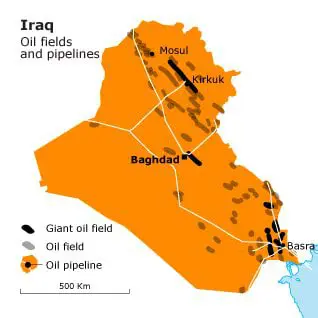
That the Baath regime succeeded in consolidating its position and even strengthening it during the 1970s can
be credited largely to a sharp increase in oil revenues.
The nationalization of the Iraq Petroleum Company in June 1972 and the enormous increase in income from the sale of crude oil after the ‘oil crisis’ of 1973 greatly expanded Baghdad’s financial maneuvering room.
Much of that income was applied to the expansion and improvement of the infrastructure and to various social programs, including housing, education, and health care. This led, during the 1970s, to an improvement in living standards for much of the population.
In foreign policy, Iraq hardened its position towards the West. The nationalization of Western European and US petroleum interests led to the predictable tensions, largely because this was done in close cooperation with the Soviet Union. These were the years during which Iraq, with Algeria and Iran, played a leading role in the Organization of Petroleum Exporting Countries (OPEC).
The ruler of Iran, Mohammad Reza Shah Pahlavi, played an important role in the West’s efforts to destabilize Iraq by supporting Iraqi opposition groups. The Baath regime allied itself with the USSR in order to counter this opposition. The anti-Communist history of the Baath Party and the regime was no obstacle to Moscow in initiating these relations.

